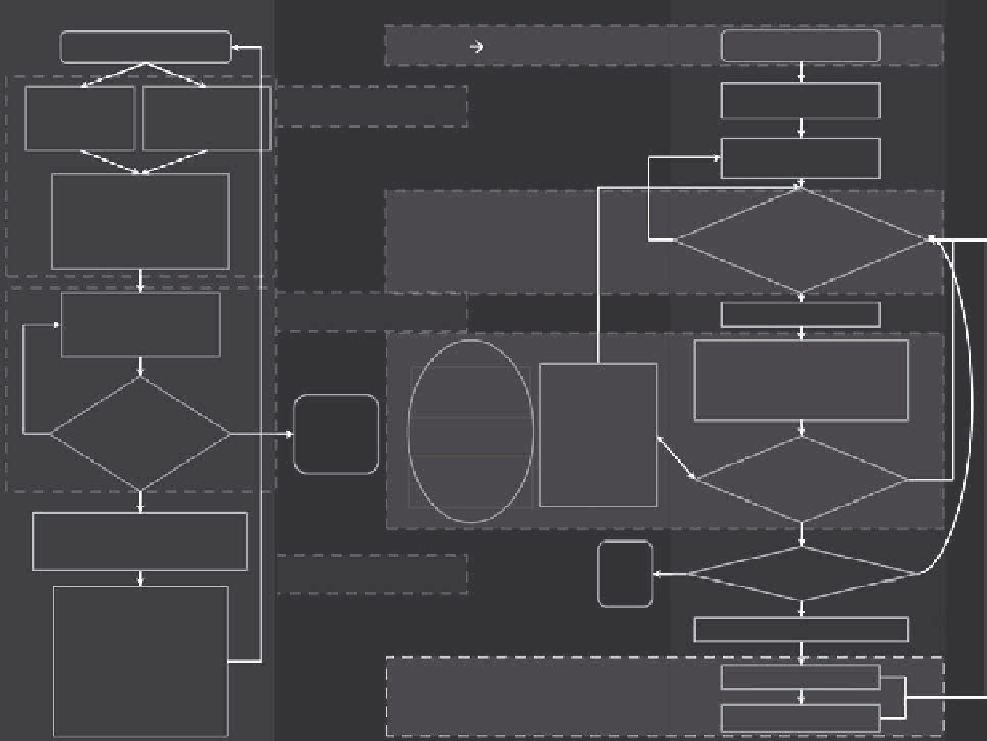Biomedical Engineering Reference
In-Depth Information
User actions
AT Assessment Components
Center for Te chnical Aid
User/client REQUEST
START
ICF factors
(user request)
Request to
solve activity
limitations
Request to solve
enviromental
restrictions
Contact
User seeking solution
Clinical measures, functional
analysis, and psycho-socio-
environmental evaluations
User data collection
Providing history
(medical, rehabilitation,
support use) and
psycho-socio-
environmental data
Multidisciplinary
team meeting
for:
Data elaboration
- user data valuation
and - setting
design
NOT
User subjective
evaluation of
technological aids
User checking solution
Setting set-up
Matching process:
- assistive solution
proposal
- assistive solution
user-trial
- assistive solution
outcome
Environmental
assessment
process (
see
the Usability
and
accessibility
evaluation
diagram
)
Te chnological
aid selection
User
evaluation of
assistive
solution
Temporary
or
permanent
EXIT
NOT
NOT
Assistive solution
Environmental
evaluations
Multidisciplinary
team evaluation
NOT
Assistive solution obtained:
public health system or
public/private insurance
User
agreement
User living solution
EXIT
NOT
NOT
Short/long-term use
-Effectiveness
Assistive solution provision
-Eƒciency
-Usability
-Personal, emotional,
social, comfort with use
-Subjective well-being
-Benefit
Personal well-being, user
satisfaction, and benefit
from use
User support
Follow up
FIgUre 1.2
(
See color insert.
) The assistive technology assessment process flow chart.

